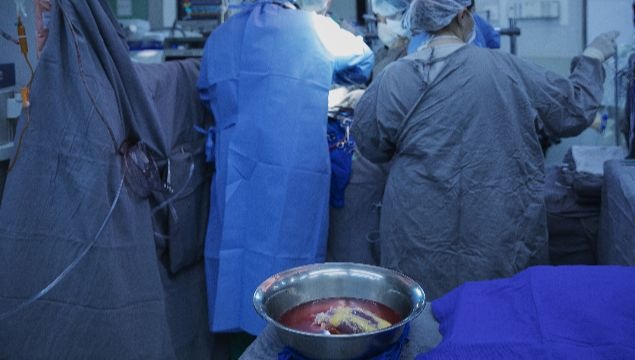Latest Photo Galleries
Brazilian Markets
17h38 Bovespa |
+1,50% | 126.526 |
16h43 Gold |
0,00% | 117 |
17h00 Dollar |
-0,93% | 5,1156 |
16h30 Euro |
+0,49% | 2,65250 |
ADVERTISING
Brazil Carried Out Its First Heart Transplant Exactly Fifty Years Ago
05/25/2018 - 12h13
Advertising
GABRIEL ALVES
FROM SÃO PAULO
In 1968, the country followed the saga of João Boiadeiro, who underwent the first heart transplant in Brazil - and in Latin America as a whole. João suffered from heart failure and died 28 days after the surgery.
South Africa, the US, France and England all had a head start, performing their own heart transplants in 1967. But this heart donation was only authorized after the donor was diagnosed with brain death - a requirement that persists to this day.
| Foto: Lalo de Almeida/ Folhapress | ||
 |
||
| Donated heart awaits to be transplanted, in the surgical center, in São Paulo |
According to estimates made by the Brazilian Association of Organ Transplants (ABTO), it would take 1,600 transplants per year to contemplate all of those in need of organs - a number that reflects the size of the country - but only about 400 transplants are carried out per year.
As a result, three-quarters of the patients die either while waiting in line for a transplant or without having been properly diagnosed.
In Brazil, 302 people are waiting in line for a new heart. According to the statistics, one in three will die before it is their turn.
While waiting in line for a new heart, patients can turn to temporary solutions, using devices that can help the defective organ. In addition to intra-aortic balloons - which help pump blood to the aorta - there are ventricular assistance devices that can be attached to the heart to help it pump blood. In these cases, the heart is only partially assisted.
Another possibility is to almost entirely replace the heart with an artificial organ, which can cost more than R$ 500 thousand (approximately US$ 140 thousand).
It should be noted that, however modern and effective artificial organs may be, doctors are not relying on them too heavily for the future. Instead, they will rely more on xenotransplants - in other words, organs that come from animals - and organs that are entirely developed in laboratories.
Translated by THOMAS MATHEWSON



